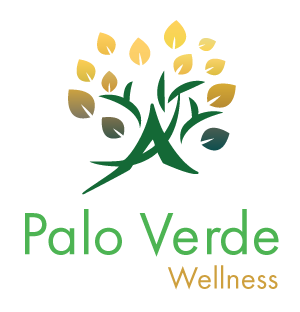Making the decision to seek treatment for a substance use disorder is a smart one. It can also be a very overwhelming decision. Going through the treatment and recovery process in manageable steps makes it less overwhelming. Many treatment facilities utilize the 12-step rehab program developed by Alcoholics Anonymous (AA). Once you leave treatment and the experts who helped you get sober, you can continue to rely on the core principles of the 12 steps and practice them on your own as often as you need to stay on the right path. For questions about addiction treatment in Palm Springs and what is involved in the 12-step rehab program, give Palo Verde Wellness a call at 760-359-2180.
The 12 Steps of Addiction Recovery
The 12-step program of addiction recovery is a tried and true program developed by AA and Bill Wilson. It is one of the oldest addiction treatment programs around and is used by treatment centers nationwide. It’s universally seen as a manageable way to help people who suffer from addiction recover successfully.
Some think that the 12 steps are part of one specific church or religion, but that is not true. While the steps are rooted in a belief in a Higher Power, anyone can follow the steps, regardless of faith. It is a very effective program for anyone who believes in God or a Higher Power and is willing to lean on them to achieve recovery. People of any religious faith and non-religious people alike can work the steps and benefit from them.
Paraphrasing from Alcoholics Anonymous (AA), the 12 steps of recovery include:
- Admit that you are powerless over alcohol and you cannot manage on your own
- Believing in God or a Higher Power to help you recover
- Giving yourself over to that Higher Power
- Making a moral inventory of yourself
- Admitting your wrongdoings to God, yourself, and others
- Being ready to have God remove your shortcomings
- Asking God or a Higher Power to remove those shortcomings
- Making a list of people you have wronged and making amends to all of them
- Making amends with each of those people unless doing so will cause further harm to them or others
- Taking personal inventory of your life and admitting to your mistakes
- Using prayer or meditation to improve your connection with God
- Having a spiritual awakening as a result of these steps and carrying this message to others who are struggling with alcohol
The 12-Step Rehab Program
One of the great things about the steps in the program is that they can be worked on individually or as part of a group. Many people in recovery will continue to attend regular AA meetings to work on the steps continually in their life. These structured steps help to:
- Prevent a relapse by breaking the cycle of addiction
- Build a strong sober network
- Address triggers and traumas that lead to addiction
- Develop effective coping and problem-solving skills
- Create healthy relationships
- Heighten self-awareness
- See your value and promote self-worth
- Find spiritual purpose
Call on Palo Verde Wellness for Addiction Recovery in Palm Springs
Palo Verde Wellness is built on an integrated approach to addiction treatment. The 12-step program structure fits in perfectly to complement other therapeutic approaches. The 12-steps have been well-tested over the years with great success. As a peer-based support system, it’s meant to be utilized as a part of treatment as well as in your day-to-day life.
If you or a loved one is struggling with a substance use disorder and needs help, the clinical team at Palo Verde Wellness is on call.
Our programs and services also include the following:
- Relapse prevention therapy
- Sound baths
- Experiential therapy
- Nutrition and education counseling
- Yoga therapy
- Adventure therapy
- Dialectical behavior treatment (DBT)
- Cognitive-behavioral therapy (CBT)
- Eye movement desensitization and reprocessing (EMDR) therapy
Call us today at 760-359-2180, or fill out our online form and let us get back to you.

